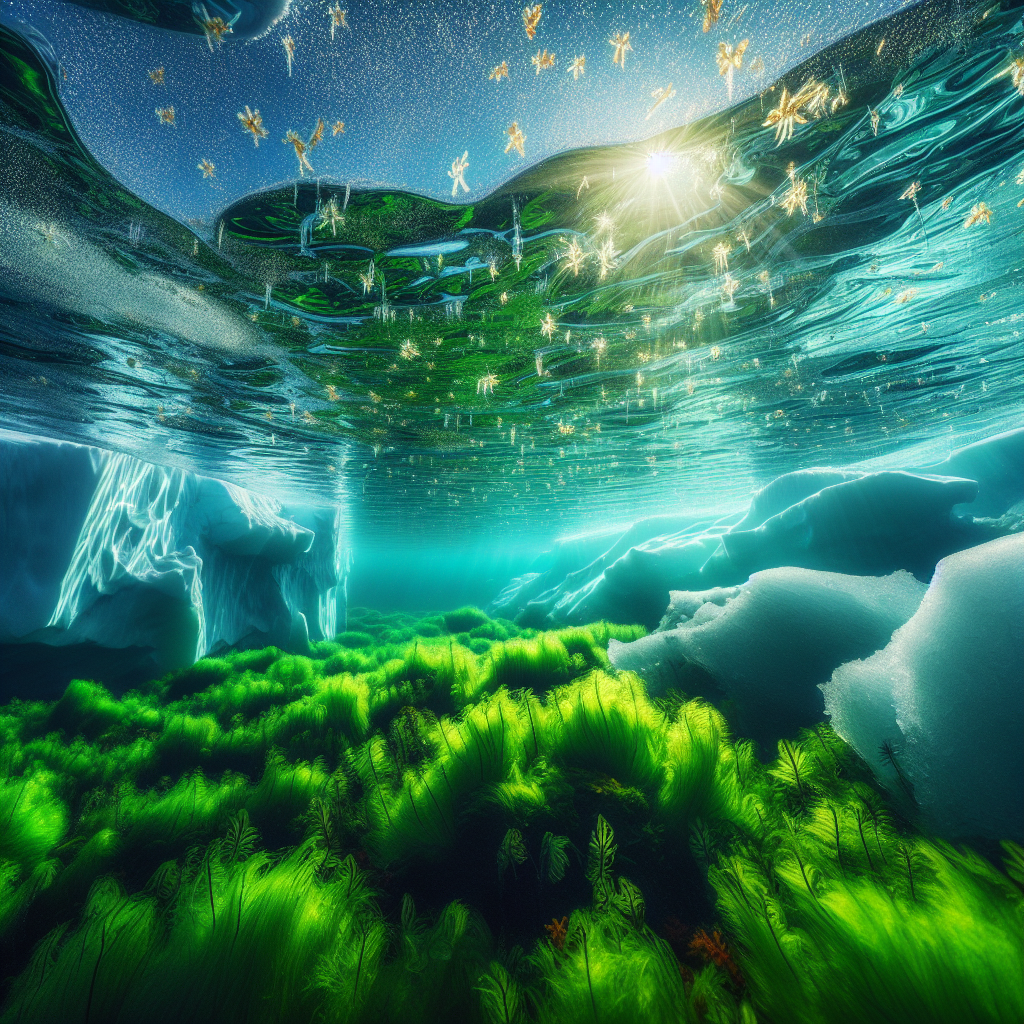Why Scientists Are Studying Arctic Algae
Arctic algae, often overlooked in the broader climate conversation, are now at the forefront of scientific research. Understanding these tiny organisms is crucial, as they play a significant role in carbon cycling and climate regulation. The primary focus of this research is to uncover how Arctic algae influence global ecosystems and contribute to climate resilience.
Arctic algae thrive in cold, nutrient-rich waters and are a foundational component of the Arctic food web. They not only provide food for a variety of marine species but also contribute to the ocean’s ability to absorb carbon dioxide from the atmosphere. This process, known as carbon sequestration, is vital for regulating global temperatures and mitigating the effects of climate change.
Impact of Arctic Algae on Climate Change
Recent studies suggest that the proliferation of Arctic algae could be a barometer for changes in sea ice patterns and ocean temperatures. As sea ice diminishes, more sunlight penetrates the ocean, facilitating greater algae growth. This growth could potentially lead to increased carbon sequestration. However, the long-term implications of this increase are still under investigation, highlighting the need for continued research in this area.
Scientists also study the migration patterns and survival strategies of Arctic algae in changing temperatures, which could provide insights into how similar species might adapt to global warming. By understanding these mechanisms, researchers hope to predict and mitigate the adverse effects of climate shifts on marine biodiversity.
The Role of Technology in Algae Research
Advancements in satellite imagery and underwater drones have revolutionized how scientists study these organisms. These technologies allow for more precise measurement of algae populations and their movements, providing data that is crucial for accurate climate modeling.
Research into Arctic algae not only deepens our understanding of the Earth’s climate systems but also underscores the interconnectedness of global ecosystems. The findings could inform policy decisions and climate action strategies, emphasizing the importance of preserving our planet’s biodiversity.
As this field of study expands, the role of Arctic algae in climate resilience continues to be a critical area of research. Understanding these organisms’ contributions and responses to environmental changes is essential for developing effective strategies to combat climate change and protect marine ecosystems.
Insight: The study of Arctic algae is more than a scientific curiosity—it’s a crucial part of understanding and combating global climate change. As researchers uncover more about these resilient organisms, the information gleaned will not only fill gaps in our ecological knowledge but also guide future environmental policies and global climate initiatives.


